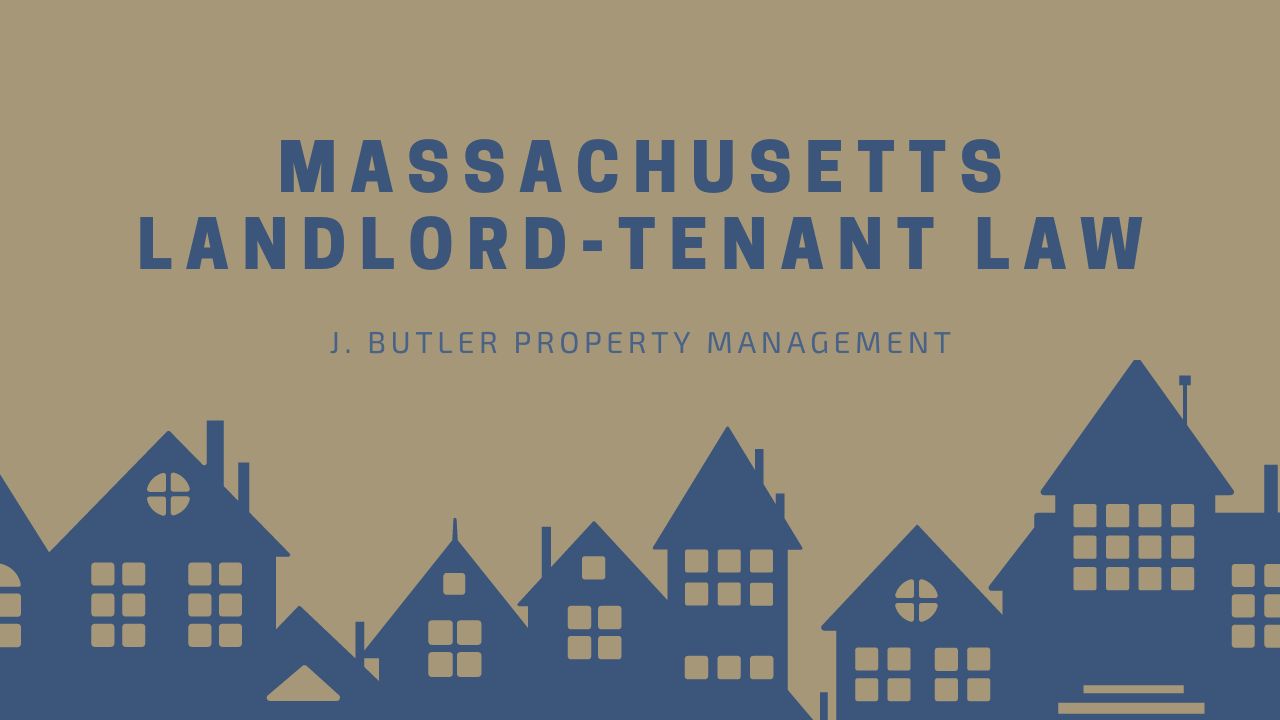
Massachusetts Rental Laws – An Overview of Landlord-Tenant Rights
April 10, 2023
Massachusetts Rental Laws – An Overview of Landlord-Tenant Rights

If you’re planning to buy a rental property in Massachusetts or already own one, it’s essential to know the landlord-tenant law that governs the state. This law outlines your rights and responsibilities as a landlord, as well as those of your tenants. Here’s what landlords need to know about the state’s laws:
Required Landlord Disclosures in Massachusetts
In Massachusetts, landlords are required to disclose the following information to tenants:
Nonrefundable Fees
Non-refundable fees in Massachusetts are seen as an optional disclosure. However, it’s recommended that any non-refundable charges be clearly mentioned in the lease or rental agreement.
Security Deposit
Massachusetts landlords who charge tenants security deposits must disclose the holding information of the funds within 30 days. It should include the amount of the deposit, the location of the funds or the name of the financial institution where the funds are held, and the account number.
Landlords must also provide tenants with a receipt of the security deposit right after receiving the money, or within 10 days of the start of the tenancy. The receipt should include the amount of the security deposit, the date when it was received, the name of the person and signature who received the deposit, and a description of the rental unit.

Rights of Domestic Violence Victims
The lease agreement must contain a provision indicating the tenant’s special statutory rights to seek a release of rental obligation if they are in danger from stalking or forms of domestic violence.
Truth in Renting Act
The rights and responsibilities of all parties must be clearly indicated in the rental agreement.
Owner or Agent Identity
In Massachusetts, landlords or any authorized entity to act on behalf of the property owner should provide their names, contact information, and addresses within or alongside the rental agreement.
Move-in Checklist
If the landlord intends to charge a security deposit, a move-in checklist must be provided within 10 days of the move-in date. This should include the inventory of the rental unit’s condition, as well as any pre-existing damage and furnishings provided.
Tenant Rights and Responsibilities in Massachusetts
Massachusetts tenants have the right to:
- Live in a habitable, safe, and sanitary dwelling place
- Have repairs made within a reasonable amount of time
- Withhold rent or make the necessary repairs and deduct the cost from future rental payments if repairs are not made within a reasonable timeframe
- Receive written receipts for rent and security deposits
- Privacy, peace, and quiet
- Exercise their housing rights
A tenant is responsible for:
- Paying the rent on time
- Abiding by the terms of the lease
- Keeping the unit and fixtures clean, habitable, and sanitary
- Performing small repairs and maintenance
- Not disturbing the neighbors

Landlord Rights and Responsibilities in Massachusetts
The following are basic landlord rights in the state of Massachusetts:
- Collect rent payments on a timely and regular basis
- Charge a tenant for any damages that go beyond normal wear and tear
- File for an eviction if the tenant violates the lease terms
- Charge tenants for illegally breaking a lease
Here are the basic responsibilities of Massachusetts landlords:
- Provide a habitable housing
- Make the requested repairs within 14 days of notice
- Disclose the necessary information in the lease agreement
- Obtain permission from the tenant to enter the property
An Overview of the Landlord-Tenant Laws in Massachusetts
The following is an overview of some of the regulations you’ll need to abide by in accordance with the state’s landlord-tenant laws:
Tenant’s Right to Privacy and Landlord’s Right to Enter the Dwelling
Under Massachusetts law, landlords are required to get permission from tenants before they can enter the dwelling unit. Reasonable advance notice of at least 24 hours must be provided to the tenants. Landlords may enter the property for the following reasons:
- For property inspection
- To make repairs or alterations
- To show the property to prospective tenants or buyers
- With a court order
- If the property is abandoned
- During emergencies

The Condition, Maintenance, and Repairs
Landlords are responsible for providing a habitable property to tenants. A property is considered habitable if it:
- Has proper locks on doors and windows
- Has adequate garbage receptacles
- Complies with the standard health and safety code
- Offers amenities that are working well
Fair Housing Laws
The Fair Housing Act prohibits landlords from discriminating against tenants on the basis of race, national origin, color, religion, sex, familial status, or disability. In Massachusetts, added protections are provided for tenants on the basis of income source, gender identity, sexual orientation, age, genetic information, marital status, and military status.
Security Deposit Regulations
Massachusetts landlords may charge tenants a security deposit with a maximum limit that’s equivalent to one month’s rent. Landlords must return the deposit, or what remains after allowable deductions, within 30 days after the tenants move out. The allowable deductions include unpaid rent, unpaid taxes, and damages that exceed normal wear and tear.
Additional Landlord Disclosures
Massachusetts landlords are required to include the following disclosures in the lease agreement:
- Landlord Name and Address
- Security Deposit Holdings and Receipt
- Move-In Checklist
- Fire Insurance Information
- Lead Paint Disclosure
Bottom Line
Now that you know the basics of Massachusetts landlord-tenant law, you should be able to operate your rental property properly and prevent legal issues. When in doubt, it’s best to hire a professional property management company that is well-versed when it comes to local and state laws. For more information, contact J. Butler Property Management.
Disclaimer: This blog should not be used as a substitute for legal advice from a licensed attorney in your state. Laws change, and this post might not be updated at the time of your reading. Please contact us for any questions you have in regard to this content or any other aspect of your property management needs.


